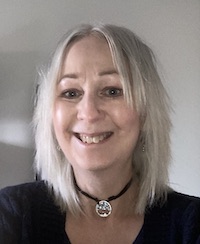A little about me

I began the path that has led to where I am now with an honours degree in Psychology. From a young age I wanted to understand people and why they do/feel what they do, so my degree choice was the first step. At that point I hoped to go into educational psychology. During a period of post university unemployment I spent some time doing voluntary work for MIND and Age Concern whilst considering my next choice.
From nursing through research to midwifery
I proceeded to graduate orientated Registered General Nurse training where—along with learning new skills—I began to use and value my knowledge about people that up to this point was mostly theoretical. On qualifying I worked in Health Care of the Elderly and then in a research post. I felt very positive about what I was doing but knew I didn’t want to stay there permanently. I decided to specialize and chose Midwifery.
The transition from midwifery to counselling
In my years as a midwife I experienced many professional opportunities as part of my role working in all aspects of clinical work and teaching care alongside a multidisciplinary team within the hospital and the community. That’s the professional description, what I did also was practise my clinical skills whilst experiencing my own development in the context of forming open and intimate relationships with women and their families during this unique time in their lives. This included so much more than the actual process of physically becoming a parent, because of how each individual (mother, father, children, friends etc.) developed and responded psychologically. Most of the experiences would be considered happy outcomes but for some, the paths to this were difficult medically and psychologically. I worked with people experiencing loss at every stage of the process. I also worked with people with other mental and physical health problems. As part of my role, I also taught student midwives, nurses and doctors.
This part of my life has given me many skills and experiences that I have since drawn on in counselling work. Also as a midwife bound to the ethics and rules of my profession I have always worked as an advocate for my client. The client was the focus of care and always comes first, even if that meant challenging other professionals. This is actually the person-centred counselling approach, so I have been working in this way for many years.
Over sixteen years ago my life changed when I experienced a significant health event. This led me to the position of looking at my life and making decisions about directions I could take within this new ongoing context. I found myself returning to my inner personal drive to understand people and undertook my training as a counsellor.
My counselling training
My counselling training was integrative but focussed on the person-centred approach which I chose because of my own experience and deeply held acceptance that every individual is a unique being who is evolving during their life to become all that they can and want to be. I feel that Rogers’ approach that we are inherently good, and that what happens to us from birth has an input into whom we become is the best place to begin. I also share his ideology that change is always possible for everyone and that—with support—every individual is capable of solving their problems and resolving their issues in order to live what they perceive and choose to be a better quality of life.
My varied clients and counselling work
During my training I worked for Cruse doing bereavement counselling (and supervising other counsellors) and for Mosaic, counselling people with ongoing chronic health and disability issues (including mental health). It was during this work that I consolidated my own counselling approach. Since then I’ve worked for two years in student counselling at De Montfort University and, together with working for myself, have been a self-employed associate at Counselling and Psychotherapy services in Leicester (as well as doing voluntary low cost work). I also work for a number of EAP organisations working with professionals and employees (including Bupa). In December 2012 I succeeded in attaining my accreditation and registration status with the BACP.
My approach in a nutshell
To summarise my professional approach: it is humanistic and based upon the person-centred ideology, but evolves for me every time I begin working with a new client, because every client teaches me more about counselling, human beings, and also about myself (as I work in supervision).




